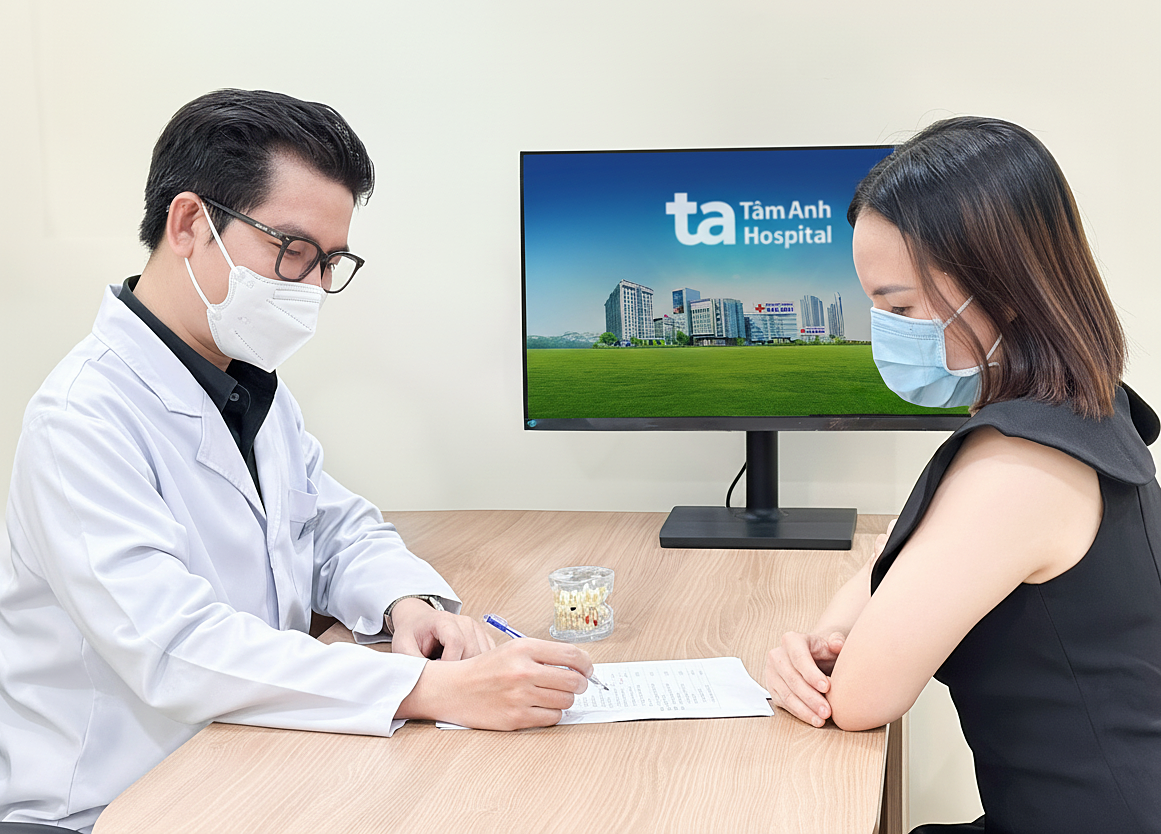Answer:
When bacterial plaque accumulates around the gum line and between teeth, it creates an environment for bacteria to thrive. Daily brushing helps remove this plaque and bacteria, preventing cavities, reducing bad breath, and lowering the risk of gum disease.
The American Dental Association (ADA) recommends brushing at least twice a day, in the morning and evening before bed, for two minutes each time. Brushing in the morning removes plaque and bacteria that accumulate overnight. Brushing in the evening cleans away food particles and plaque that build up during the day. Use a soft-bristled toothbrush with a small head, and replace it every 3-4 months or when the bristles become frayed.
In addition to brushing, you should floss once a day, preferably before bed. This removes food debris and plaque from between your teeth, helping to prevent bad breath and oral diseases.
 |
Doctor Dat consults a patient. Photo: *Tam Anh General Hospital* |
Whether brushing after every meal is beneficial depends on the food you've consumed and your specific oral health. If you eat sticky, sugary, or starchy foods, brushing 30 minutes after eating helps prevent plaque buildup. If you have braces or other orthodontic appliances, brushing after meals can prevent food from getting trapped.
If you consume acidic foods or drinks (citrus fruits, coffee, soda, or wine), wait 30-60 minutes before brushing. Acid softens tooth enamel, and brushing too soon can erode it. Rinse your mouth with water first, then brush later. If you experience bad breath, cavities, gingivitis, or frequent periodontal disease, your doctor may recommend brushing three times a day, after each meal.
Proper brushing technique is as important as frequency. Place your soft-bristled toothbrush at a 45-degree angle along your gum line and move it back and forth in short strokes. Use gentle pressure to avoid damaging or scratching your gums. Clean all surfaces of your teeth, including the chewing surfaces and the insides. Finally, brush your tongue to remove bacteria from your mouth.
Doctor Vu Thanh Dat
Department of Odonto-Stomatology
Tam Anh General Hospital, Ho Chi Minh City
| Readers can submit questions about ear, nose, and throat conditions here for doctors to answer. |












